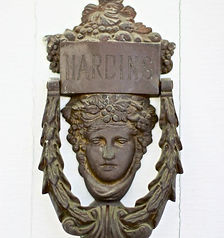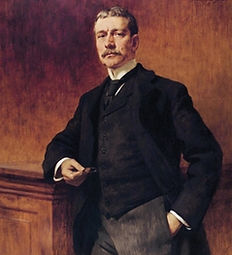History of Harding Farm

Our Mission
Our mission is to preserve and improve this historic property for the enjoyment of family, the community. We strive to make Harding Farm a place of inclusion and positive energy to strengthen bonds between family members and friends for today and future generations.
Samuel Kirkland

Missionary Samuel Kirkland arrived in the Oriskany Valley to educate the Oneida Indians (part of the "Great Awakening") shortly after the signing of the Treaty of 1768. This treaty, which established the Western boundary of the American Colonies just west of the Oriskany Creek laid the foundation for the Oneida's support of the Colonists during the Revolutionary War. Kirkland developed close ties with the Oneida and eventually served the challenging roles of missionary, interpreter and diplomat between the Oneida and the Colonists (see S. Kirkland letter to General Schuyler).
During the war, the Oneida played a critical role securing the lands between the Hudson River and Canadian border. In addition, the Oneida sent corn and people to Valley Forge to provide nutrition to the Continental Army during the legendary winter. (The Smithsonian Museum commemorated this act in a sculpture of General Washington, Oneida tribe member Polly Cooper and Chief Skenandoa)
In 1788, to compensate Kirkland for his effort during the War, the The State of New York granted Kirkland 4,000 acres of land extending from the western bank of the Oriskany Creek to the top of today's College Hill at Skyline Drive. In 1793, Kirkland donated 300 of his acres on the hill for the creation of his Hamilton-Oneida Academy and began building a magnificent home that later became known as the Kirkland Mansion. This home is now the main House at Harding Farm. According to legend, Kirkland chose the site for his home where Chief Skenandoa counseled, it the site where "the grass is first green in Spring and the leaves stay on the trees longest in Fall."
The Oneida were welcome at Kirkland's home as they passed through the Oriskany Valley. They slept on mats before the fireplaces in the house and could often be seen on the grounds surrounding the home. When Kirkland died in 1808, he was buried in the orchard behind his home.
In 1812, the Hamilton-Oneida Academy was re-named and re-chartered as Hamilton College in honor of U.S. Treasury Secretary, Founding Father and New York resident, Alexander Hamilton.
The extraordinary friendship between Kirkland and Chief Skenandoa was best exemplified in 1816 when Skenandoa's request to be buried beside Kirkland "to ride his coattails to Heaven"
Shortly after the Harding Family purchased the property in 1851, both bodies were exhumed and moved to their present location in the Hamilton College cemetery.
The Kirkland Cottage
Kirkland lived in a small cottage (built in 1792) at the foot of the Hill while his grand home was under construction. Kirkland's cottage (now called "Kirkland Cottage") was moved in 1876 to a location near the Hamilton College cemetery and moved again in 1925 to its present location at the center of campus. This modest structure, which is the oldest building on the Hamilton College campus is used by the College's president every Fall to welcome new students to the Hill and preside over their matriculation.
Clinton's most famous native son, Elihu Root purchased Harding Farm as a wedding gift for his daughter. Fortunately, for the Harding Family, the newlyweds never moved in to the home and it was available for Henry (son of Lyman) to repurchase it in 1914.




The Harding Family
After Kirkland's death, his home was sold to a Hamilton College professor named Lathrop who later sold it to his brother. In 1855, a young man named Lyman Shumway Harding from Madison County, New York purchased the Kirkland home with the goal of establishing a dairy farm that would be the pride of Oneida County. By all accounts, he fulfilled his dream as Harding Farm thrived under his watch. His impressive farm was well maintained and the dirt road below the his home became known as Harding Road.
In the late 1800's, Lyman's son Henry W. Harding, attended Hamilton College. After graduating in 1873, Henry turned away from farming to pursue a career in the vibrant city of Detroit, Michigan. Henry started the Harding Lumber Company in Detroit and Lyman sold Harding Farm in 1903 to Clinton neighbor Elihu Root. The sale of "Clinton's finest manor house" to the town's most famous son was chronicled in the local paper, The Clinton Courier. The property sat dormant for much of the period until Henry bought it back in 1914 when he was nearly sixty years old.
Henry's goal was to return to his boyhood home and transform the property in to a country estate. Henry and his wife Agnes Clute Harding (a.k.a. "Lu-Lu") decided the old dairy farm needed to be made more livable and updated to the standards of the 20th Century. This led to a massive renovation of the main house, the removal a many farming structures, the movement of a horse barn away from the main house, the addition of a chauffeur's Carriage House and a large driveway linking the buildings. These changes created a beautiful compound with expansive lawns and a welcoming arboretum. The days of dairy farming were gone forever.
Upon Henry and Lulu's death, the farm was inherited by their daughter Agnes Harding Barrows. Despite significant financial and personal challenges, Agnes (known as Nance), held on to the farm through the Depression and World War II. Nance's son Henry W. Harding and daughter Molly Harding Osborn spent a great deal of time at the farm as children. There they developed a close relationship with their grandparents (Henry and LuLu), the property and the Clinton community. Henry enrolled in Hamilton College and later married Agnes Burke, the daughter of a Hamilton's Chairman of the Board of Trustees and sister of two Hamiltonians.
Henry and Agnes Burke Harding (known as Poppy by her grandchildren) spent summers, holidays and weekends in Clinton. Over time, they acquired additional land along the Oriskany Creek and two additional houses (the Tanner House and Proctor House) on Harding Road. For a brief period, Henry even organized a group of investors who purchased The Alexander Hamilton Inn to save it from destruction. While Henry and Agnes owned Harding Farm, many improvements were made to the property, including the installation of a Pool and a major renovation of the old horse barn, converting it in to today's Pool Barn. In the second half of the 20th Century, Henry raised Black Angus and White Faced Herefords with his sons and friend Joe Gigliotti.
Today Harding Farm is owned and managed by a number of Henry and Agnes' grandchildren and their spouses. A few of us are graduates of Hamilton College and all of us share a deep love for Harding Farm, Clinton, New York and the greater Mohawk Valley area. Since our stewardship began in 2002, we have added lands, buildings, an Adirondack lean-to, expanded two ponds established a bison herd and much more.